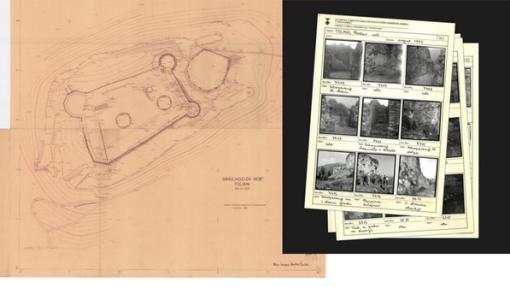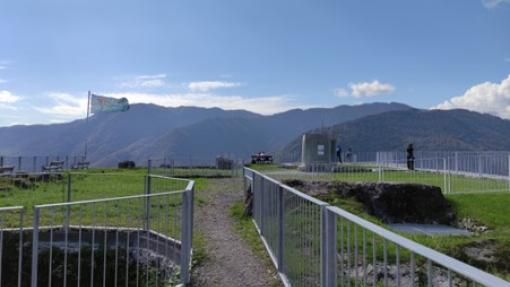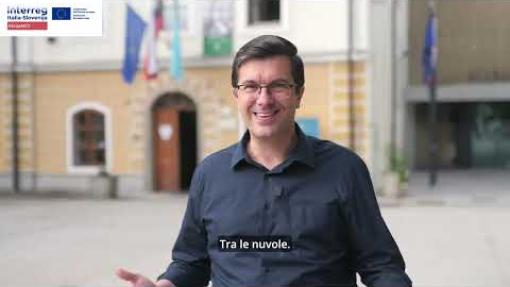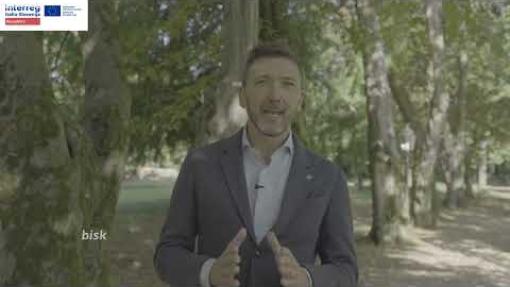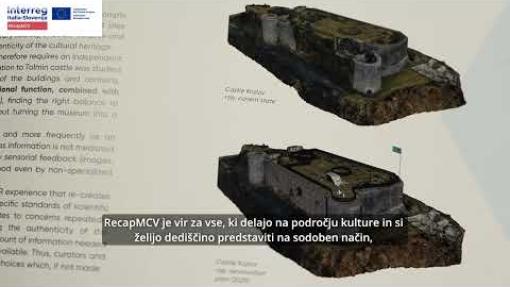
RecapMCV
Policy objective: PO4 - A more social and inclusive Europe implementing the European Pillar of Social Rights
Specific objective: SO 4.6 - enhancing the role of culture and sustainable tourism in economic development, social inclusion and social innovation
Typology: capitalization project
The project Recapitalization of MerlinCV – to provide innovative experiences of natural and cultural heritage in a cross-border area builds upon the results of the MerlinCV project. It explores ways to present cultural heritage that is less accessible or poorly represented in a manner that meets the modern expectations of tourists — engagingly and inclusively.
Through the use of digital and immersive heritage presentation technologies, the project has developed new approaches to the presentation and interpretation of castles, palaces, villas, and historic town centres in the Slovenian–Italian cross-border area. RecapMCV focuses not only on tourism promotion but also on the sustainable use of cultural heritage and the educational potential of digital content for various target groups. It therefore encourages cross-border cooperation among cultural, research, and educational institutions, local communities, the tourism sector, and small and medium-sized enterprises.
The project has demonstrated that heritage is a driver of sustainable cultural tourism, a catalyst for the development of cultural and creative content, and a source of social innovation. Cultural heritage connects people of different generations, interests, and backgrounds. In this context, social innovation manifests itself through new forms of inclusion and improved accessibility for vulnerable groups, as well as through the use of digital tools as bridges between education, tourism, and culture.
The main objectives of the project were to:
• develop innovative digital cultural heritage products that support sustainable and thematic tourism in the cross-border area,
• professionally and attractively revitalise the underused heritage of castles, palaces, and villas through thematic storytelling routes,
• offer Europe-relevant solutions for the development of sustainable cultural tourism,
• expand and promote existing digital cultural heritage products and bring them closer to new target audiences,
• ensure the valorisation and transfer of best practices in heritage interpretation and enhancement, and
• design a strategy and action plan for sustainable digitisation and multisensory presentation of cultural heritage.
Outputs and Results
• A mobile immersive room on Kozlov Rob above Tolmin offers visitors a 360° digital experience of the history of the three Tolmin castles and manors, using 3D scanning and digital reconstruction.
• The MerlinCV and RecapMCV platform (https://merlincv.zrs-kp.si/en) has been enriched with thematic itineraries (Baroque, Cobenzl family heritage, Santorio Santorio, Baroque itinerary through Koper) and linked to educational materials for schools, universities, and lifelong learning.
• The interpretive and management action plan for Kozlov Rob, along with archaeological research in the area, provides a foundation for sustainable management of cultural and natural heritage and serves as an example of good practice.
• A multilingual publication with a strategy and action plan for the use of immersive spaces in heritage preservation and valorisation: “Immersive Room as an Innovative, Inclusive, and Sustainable Tool for Presenting and Experiencing Cultural Heritage: Strategy and Action Plan.”
• Educational and promotional videos present modern approaches to immersive room design, a glossary of digital terminology, and examples of good practice from Salzano and Tolmin.
• At the cross-border public event on digital heritage in Koper, good practices of digitisation were showcased through concrete product demonstrations.
• Cross-border public events in Koper, Tolmin, Gorizia, and Mira near Venice introduced the project to the wider public and fostered connections between cultural and educational institutions, local communities, creative industries, and tourism.
